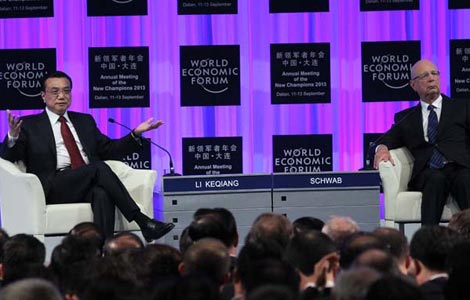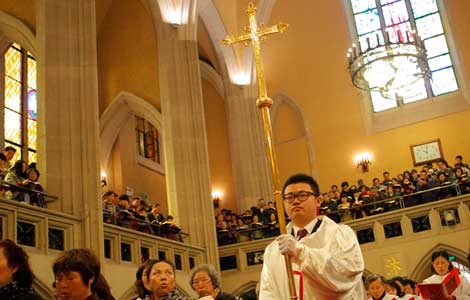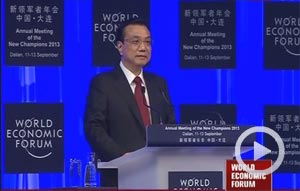Shanghai FTZ tests China's currency liberalization
Updated: 2013-09-12 19:07
(Xinhua)
|
||||||||
While such reforms have long been advocated, some analysts argue rolling them out now could be hasty, saying opening the capital account would make China vulnerable to the Federal Reserve's quantitative easing (QE) tapering and add to risks rising from other reforms at home.
It is feared that demolishing the currency curb will trigger a capital flight draining China of liquidity. According to foreign media reports, it was reported that cash in billions of US dollars has already left China through money trafficking to seek better yields or alternative investments overseas.
Although the general plan is about to be released, until now, no detailed proposal of how to operate the test bed has been finalized, which suggests the regulators vary on the pace and steps of opening the capital account, according to sources with direct knowledge of the issue.
Jitters over the Fed's reduction of its stimulus have spawned a broad sell off in emerging economies, reeling the capital markets in Asia and plunging the Indian rupee and Indonesian rupiah to lowest levels in years.
Economists say it is the closed capital account that kept China immune to the QE tapering while other emerging economies saw their asset prices and currency exchange rates dive.
"Once the capital account is open, closing it will be very hard. And when China realizes it needs to re-regulate the capital account, big problems may have already happened," Wang said.
Yu Yongding, a strong opponent to the capital account opening, said China should focus on reforms of currency exchange rate and interest rate.
"Before those reforms are done, opening the capital account can lead to unexpected risks," said Yu, who sat on the central bank's monetary policy committee from 2004 to 2006, when China was planning to allow the yuan to appreciate.
The central bank, however, said China had already made significant achievements in liberalizing capital movements and risks for further deregulation are manageable.
"The FTZ will play a useful role in China's new round of reforms and opening-up in the coming decade, the success of which will be crucial to invigorate the Chinese economy and unleash its growth potential," wrote Barclays chief china economist Chang Jian.
Wang Xinkui, an economist participating in the draft of the FTZ plan, said China built the Shanghai FTZ to accumulate experience and confidence. "Experiences learnt in the FTZ will be shared nationwide," Wang said.

 Another iPhone4 explodes while charging
Another iPhone4 explodes while charging
 Premier stresses transformation of the economy
Premier stresses transformation of the economy
 Soyuz capsule returns from space station
Soyuz capsule returns from space station
 China's Christian churches reduce leaders' age ceiling
China's Christian churches reduce leaders' age ceiling
 Student's rare blood bonds Kazakhstan and China
Student's rare blood bonds Kazakhstan and China
 Apple's low-end phone price disappointing
Apple's low-end phone price disappointing
 US marks 9/11 anniversary
US marks 9/11 anniversary
 German Bach elected as IOC president
German Bach elected as IOC president
Most Viewed
Editor's Picks

|

|

|

|

|

|
Today's Top News
Can China withstand global funds shifts?
China Daily Asia Weekly wins media award
Report questions US firms pursuing cloud computing in China
Reducing poverty gains momentum in Asia
China turns to US sorghum for animal feed
China's global firms face 'trust gap'
Li stresses transformation of economy
US delivers weapons to Syrian rebels
US Weekly

|

|






